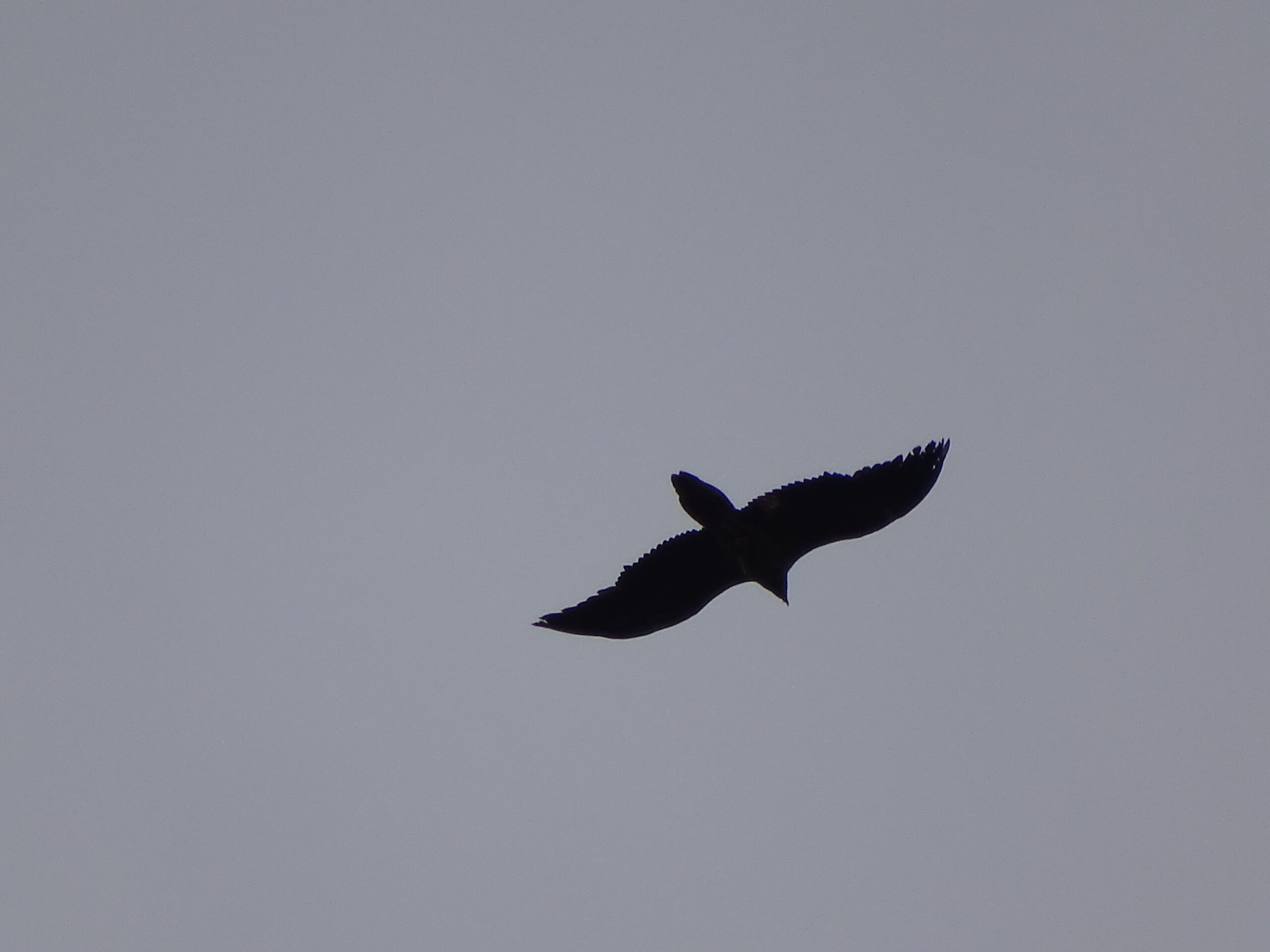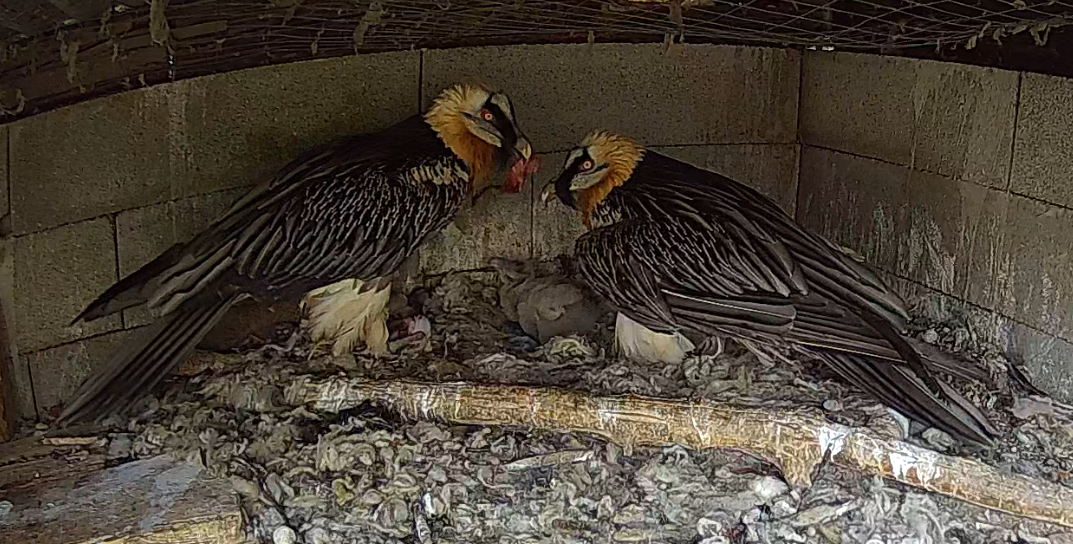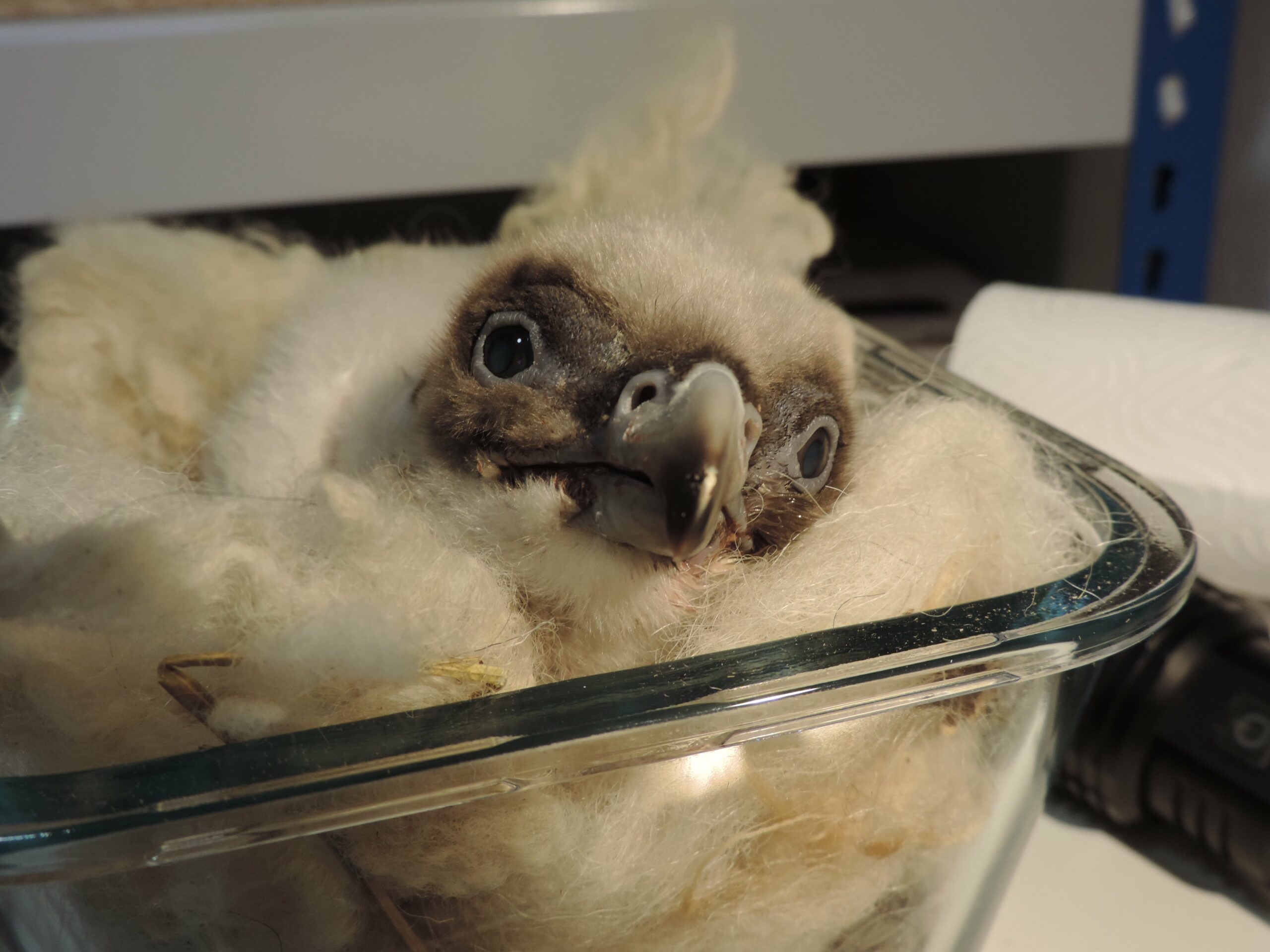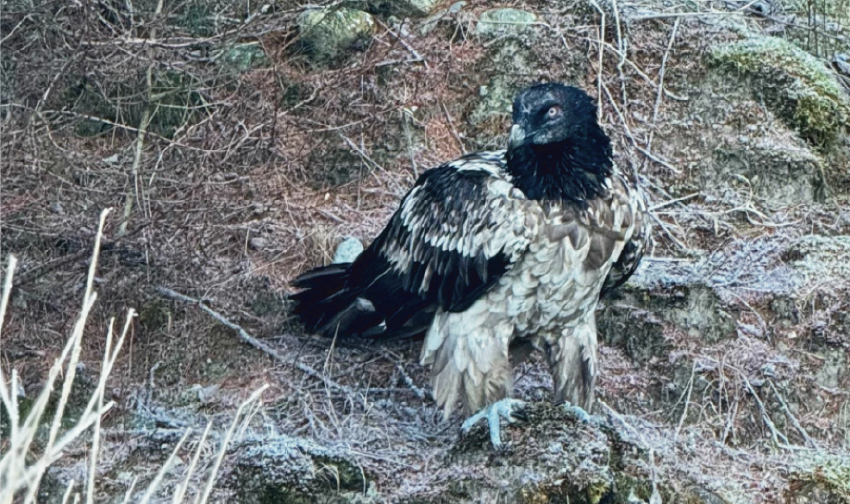
The 10th of June will be a milestone in German nature conservation as two Bearded Vultures were released into the wild in Berchtesgaden National Park (BNP), in the southwest corner of Bavaria, more than 140 years after their extinction in the country.
Preparing for the release took a lot of effort
The day dawned grey and misty, and you could see the tension and apprehension in the faces of our colleagues from the Bavarian Nature Conservation Association LBV and in the staff from BNP, who got up early to arrange the setup and all the logistics of the event. During the day before, heavy thunderstorms and downpours drenched the region. But little by little, the clouds cleared, and when the first guests arrived at the BNP’s information house in Ramsau, near the famous and picturesque Hintersee lake, there was full sunshine — a good omen for the event that followed up, and for the reintroduction of this species in Germany.
The Vulture Conservation Foundation (VCF) provided the two birds to this new release site, which will contribute to the Alpine reintroduction project. In particular, releases in Berchtesgaden will strengthen the eastern Alpine population, which is growing less quickly than the ones in the central and western Alps.

The two Bearded Vultures – both females – hatched in Spain at the Bearded Vulture Captive Breeding Centre of Guadalentín, managed by the VCF following an agreement with the Junta de Andalucía, and were named “Bavaria” and “Wally” by a local school and the readers of a national newspaper.

Hundreds of people welcomed the arrival of the birds that spent a few nights in Nuremberg zoo (a partner in the VCF coordinated Bearded Vulture Captive Breeding Network), including the Bavarian ministers of environment Thorsten Glauber, and of agriculture, Michaela Kaniber, as well as by the director of the National Park Roland Baier.
The time has come to release the Bearded Vultures
A team then took the birds in wooden boxes mounted on rucksacks up the steep mountain trail to the hacking cave (approximately 6×20 m in size at 1300 m altitude), where they will spend the next 25 days or so before fledging. There, the VCF’s scientific coordinator Franziska Lörcher put the GPS tags on them, that will allow for the close monitoring of their movements once they fledge, and the birds were left alone, with plenty of food for the next days.
They will now be monitored around the clock by a team positioned at the opposite slope, and every few days a person will go up at dawn to put some food, while the birds are still sleeping, thus minimizing disturbance, while a webcam installed in the cave is also broadcasting images live.
Bavaria and Wally are expected to fly in early July and will, of course, then be followed closely by the VCF, LBV and all the others monitoring Bearded Vultures across the Alps in a truly international effort and collaboration.
All in all, it was a great day for vulture conservation in Europe. “The elation I saw in people’s eyes today shows that Bearded Vulture reintroduction is one of the most successful wildlife comebacks stories in Europe,” says José Tavares, the VCF’s Director, who also participated in the event. “Everybody was talking about how these birds congregate wills, join people and change mentalities. That is, precisely, what we need in these times – conservation optimism! I am really looking forward to a healthy population in the eastern Alps.”
The VCF would like to thank LBV and Berchtesgaden National Park for a great event, and for managing the complex logistics of this release – the hard work is just now starting!
Bearded Vulture Reintroduction in the Alps
The species was driven to extinction in the Alps during the 20th Century, and to bring them back, pioneers from all Alpine countries initiated the reintroduction project in the 1970s. The first birds were released in 1986 at Hohe Tauern National Park (Austria), and in 1997 the first breeding pair successfully raised a chick in the wild in France.
Today, there are between 250 and 300 Bearded Vultures, including 58 breeding pairs, across the Alps. This reintroduction project has sparked the imagination and gathered the support of many stakeholders across the Alpine chain and is considered one of the best wildlife comeback stories of all times!
Now, with the release of two Bearded Vultures in the Bavarian Alps, Germany becomes the fifth country to join this successful reintroduction project, an important milestone to promote the geographical expansion of the species towards the east and boost conservation measures in the region as a whole.
Follow the VCF on Facebook and Twitter to stay tuned with the upcoming Bearded Vulture releases!








